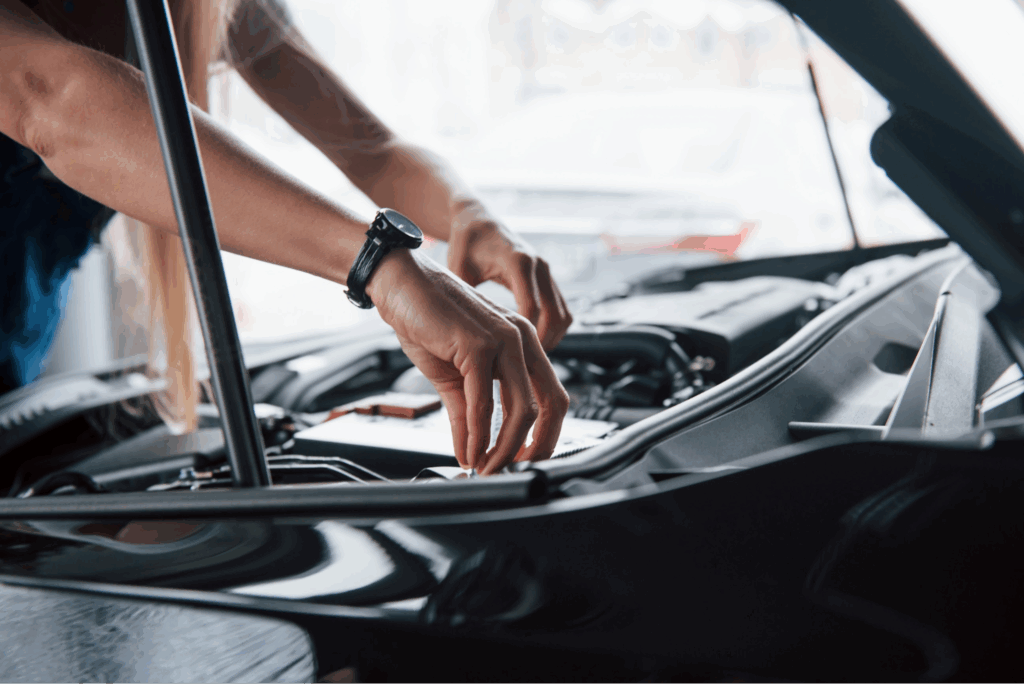Car tuning has evolved from a niche passion to a global automotive movement. It’s no longer limited to performance racers and track enthusiasts—drivers everywhere are discovering how tuning cars can improve power, efficiency, and style. In today’s automotive landscape, tuning represents technical mastery, self-expression, and customization. If you’re just getting into tuning or considering upgrading your ride, this guide will walk you through everything you need to know—what car tuning is, how it works, and why it’s more important than ever.
What Does Tuning Cars Mean?
Tuning a car means modifying factory settings or hardware to improve performance, efficiency, or aesthetics. It encompasses many changes—from adjusting the engine’s fuel-air mix to upgrading suspension systems for better handling. Tuning is not a one-size-fits-all process. Some car owners tune for speed, while others prioritize fuel savings, safety, or visual upgrades. Tuning can be mechanical, digital, or both. With today’s vehicles being more software-driven than ever, electronic tuning has become one of the most popular and impactful areas in automotive performance.
The Different Types of Car Tuning
Car tuning comes in many forms, each designed to enhance your vehicle’s performance, handling, or appearance. Each tuning category serves a unique purpose, from boosting engine power to refining how your car hugs the road. Understanding the different types of tuning is the first step toward customizing your ride to match your driving style and goals.
Engine Tuning for More Horsepower
Engine tuning focuses on increasing the car’s output by modifying combustion, airflow, and fuel delivery. By optimizing the combustion process, you can achieve more power without changing the engine’s core components. This might include changes to the ignition timing, fuel injection patterns, and throttle sensitivity. Some of the most effective tuning strategies for horsepower gains come from ECU remapping and forced induction upgrades like turbochargers and superchargers.
Suspension Tuning for Better Handling
Suspension tuning enhances a vehicle’s ability to corner, accelerate, and brake more effectively. This is especially important for track use or spirited driving. A properly tuned suspension system improves traction, minimizes body roll, and increases comfort. Modifications may involve upgrading springs, dampers, sway bars, and control arms to achieve a firmer, more responsive ride.
Transmission and Drivetrain Tuning
Transmission tuning improves gear-shifting behavior, helping your car respond more quickly under load. This can be done through software changes or physical upgrades like installing a short-throw shifter, performance clutch, or limited-slip differential. Automatic transmissions can also be tuned to shift faster and hold gears longer for performance driving.
How ECU Tuning Unlocks the Full Potential of Modern Cars
The ECU (Engine Control Unit) controls everything from fuel injection to air intake and turbo boost levels. ECU tuning, also called remapping or chip tuning, involves reprogramming this system to enhance performance. It’s one of the most effective and accessible modern car tuning methods and can substantially improve horsepower, torque, and throttle response.
How Tuning Cars Work
Car tuning is both a science and an art. It involves precise adjustments to your vehicle’s systems for improved performance. Accurate tuning goes beyond just swapping parts—it requires a deep understanding of how your car’s engine, electronics, and mechanics work together. By fine-tuning these elements, you can transform how your car drives, responds and performs on the road.
ECU Remapping
At the core of modern tuning is ECU remapping. This involves connecting a laptop or tuning module to the vehicle’s onboard diagnostics port. Tuners adjust the car’s software settings to unlock hidden performance or efficiency gains. Manufacturers often leave a margin of unused potential in their vehicles, and tuning allows drivers to take advantage of this extra capacity. Remapping can increase boost pressure in turbocharged engines, lean out fuel mixtures for better mileage, or sharpen throttle response for a more engaging driving experience. However, care must be taken to avoid pushing the engine past safe limits.
Upgrading Airflow and Exhaust Systems
An internal combustion engine is essentially an air pump. Improving air entering and exiting the engine can lead to significant performance gains. Cold air intake systems deliver cooler, denser air for stronger combustion. Performance exhaust systems reduce backpressure, allowing the engine to expel gases more efficiently. By upgrading both the intake and exhaust, you help the engine breathe more easily, making it more powerful and efficient. These modifications often pair well with ECU tuning for maximum gains.
Forced Induction
Turbochargers and superchargers force additional air into the engine, allowing more fuel to be burned and more power to be produced. Turbochargers use exhaust gases to spin a turbine, while the engine’s crankshaft mechanically drives superchargers. Adding forced induction can significantly increase horsepower, but it also requires tuning the ECU, upgrading fuel injectors, installing a larger intercooler, and reinforcing engine components to handle the extra pressure.
Suspension and Brake System Enhancements
Tuning is not just about going faster but also controlling that speed. Upgraded suspension components like coil-overs and performance shocks improve ride quality, reduce body roll, and enhance responsiveness during cornering. Stiffer sway bars and upgraded bushings can make a car feel more stable and planted. High-performance brake kits help reduce stopping distances and improve safety, especially when other modifications have increased the car’s speed. More oversized rotors, multi-piston calipers, and heat-resistant brake pads provide more consistent braking power under stress.

Why Make Time For Tuning Cars?
Drivers tune their cars for various reasons, from enhanced performance to personal expression. Tuning allows enthusiasts to push their vehicles beyond factory limitations and tailor them to fit their unique driving preferences. It’s a way to make a car feel faster, handle better, or simply stand out from the crowd.
Enhanced Performance and Speed
Many car owners use tuning to improve acceleration, top speed, or power output. A tuned engine delivers sharper throttle response, better torque delivery, and quicker acceleration—especially noticeable benefits in sport driving conditions.
Improved Fuel Economy
Not all tuning is focused on power. Some drivers want better gas mileage, especially in daily drivers or commercial fleets. Eco-tuning adjusts engine parameters for efficiency, helping drivers burn less fuel while maintaining respectable performance.
Personalization and Style
Tuning is also a way to express individuality. Visual tuning involves body kits, custom paint jobs, spoilers, carbon fiber hoods, and aftermarket wheels. Interior mods can include sports seats, custom dashboards, and upgraded infotainment systems. Every change helps create a car that reflects the owner’s style.
Track-Ready Modifications
Tuning is essential for racing enthusiasts. Competitive motorsports demand high precision and peak performance. Everything from the ECU to aerodynamics is tuned to optimize lap times. Race-tuned vehicles often feature roll cages, weight reduction, and data-logging systems to monitor real-time performance.
Safety and Control
Tuning can enhance safety by improving braking power, handling, and lighting systems. In emergencies, a car with upgraded suspension and brakes can react more effectively, potentially preventing accidents. Features like traction control and ABS systems can also be recalibrated for better real-world performance.
Is Car Tuning Safe?
Tuning is safe when done correctly by knowledgeable professionals. However, poorly executed tuning can damage your engine, reduce reliability, or create safety hazards. Software errors during ECU remapping can result in misfires or fuel delivery issues. Excessive turbo boost without proper fuel management can lead to detonation and engine failure. Suspension components not adequately aligned can compromise handling and tire wear. That’s why working with trusted tuners and using quality parts is critical. A properly tuned vehicle should be more powerful and just as reliable—if not more so—than stock.
The Future of Tuning Cars
The future of tuning cars is rapidly evolving as technology reshapes the automotive landscape. With the rise of electric vehicles, tuning is shifting from mechanical modifications to software-based enhancements. Instead of adjusting turbo boost or fuel injection, tuners optimize battery performance, torque delivery, and regenerative braking systems. Advanced diagnostics, over-the-air updates, and AI-driven tuning platforms make it easier to customize vehicles precisely. Manufacturers also embrace this trend by offering factory-approved performance upgrades that preserve warranties while delivering noticeable gains. As cars become more intelligent and connected, tuning will continue to adapt—offering drivers new and innovative ways to personalize their driving experience.

Factory-Approved Car Tuning Options
Manufacturers also get in on the action by offering tuning packages. Brands like BMW, Mercedes-AMG, and Ford Performance offer factory tuning options that maintain your warranty while boosting performance. These packages often include ECU upgrades, aerodynamic enhancements, and cosmetic changes—all tested and approved by the automaker. This trend reflects the growing demand for performance without compromise. As drivers look for ways to stand out, manufacturers are starting to support personalization in a more structured, safe way.
Why Tuning Cars Still Matters Today
Tuning cars remains relevant in 2025 because people want to connect meaningfully with their vehicles. While modern cars are faster and more capable than ever, many drivers want more than what comes standard from the factory. Tuning gives them that edge—whether it’s an extra 50 horsepower or a ride that hugs every curve. It also creates a sense of community. Online forums, car meets, and tuning expos unite people to share ideas, showcase builds, and inspire each other. Whether you’re tuning for function, style, or performance, the culture behind car tuning is as strong as ever. Please visit our Dark Night Specialties blog for more information about tuning cars.


